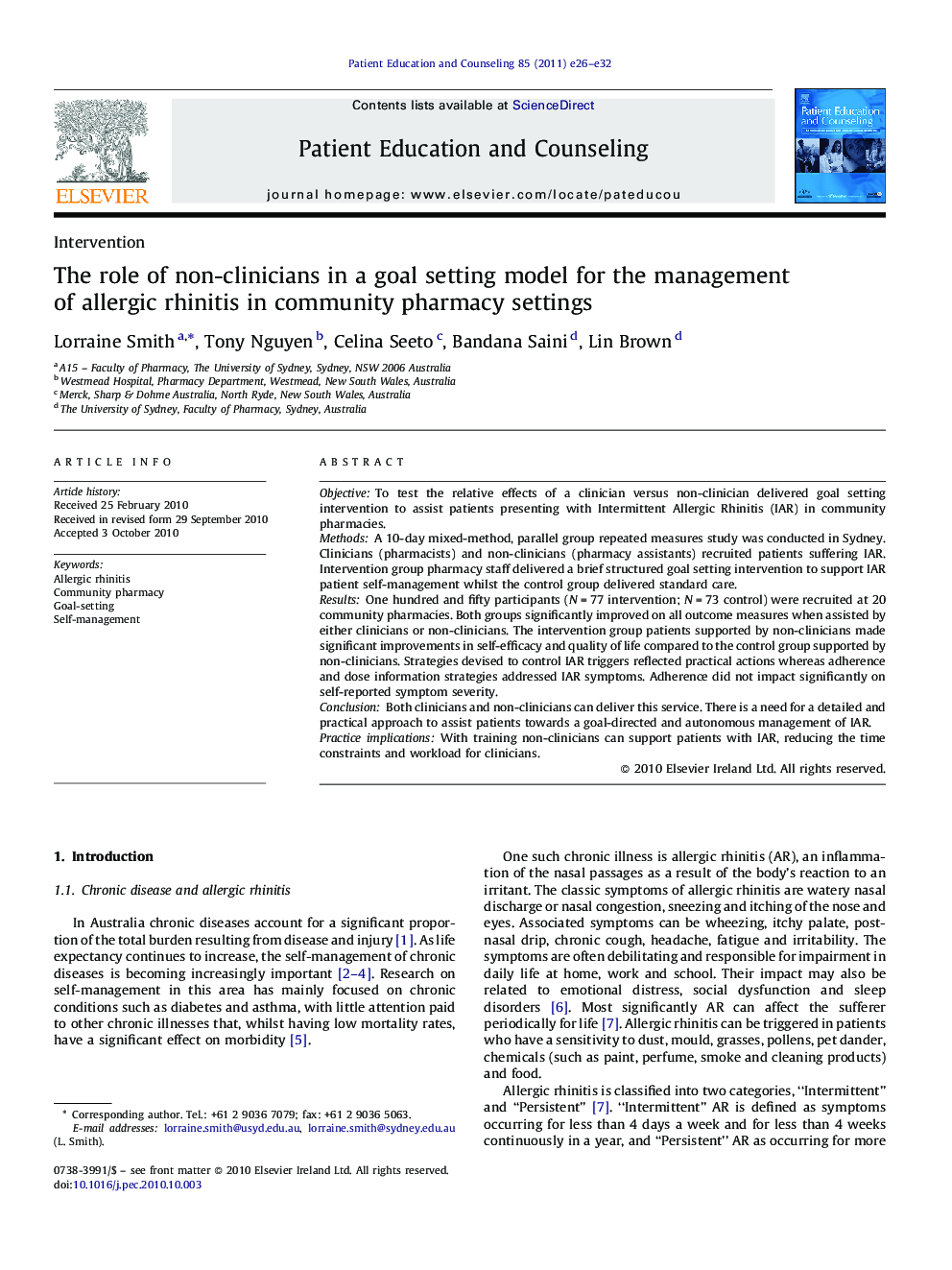| Article ID | Journal | Published Year | Pages | File Type |
|---|---|---|---|---|
| 6153506 | Patient Education and Counseling | 2011 | 7 Pages |
ObjectiveTo test the relative effects of a clinician versus non-clinician delivered goal setting intervention to assist patients presenting with Intermittent Allergic Rhinitis (IAR) in community pharmacies.MethodsA 10-day mixed-method, parallel group repeated measures study was conducted in Sydney. Clinicians (pharmacists) and non-clinicians (pharmacy assistants) recruited patients suffering IAR. Intervention group pharmacy staff delivered a brief structured goal setting intervention to support IAR patient self-management whilst the control group delivered standard care.ResultsOne hundred and fifty participants (NÂ =Â 77 intervention; NÂ =Â 73 control) were recruited at 20 community pharmacies. Both groups significantly improved on all outcome measures when assisted by either clinicians or non-clinicians. The intervention group patients supported by non-clinicians made significant improvements in self-efficacy and quality of life compared to the control group supported by non-clinicians. Strategies devised to control IAR triggers reflected practical actions whereas adherence and dose information strategies addressed IAR symptoms. Adherence did not impact significantly on self-reported symptom severity.ConclusionBoth clinicians and non-clinicians can deliver this service. There is a need for a detailed and practical approach to assist patients towards a goal-directed and autonomous management of IAR.Practice implicationsWith training non-clinicians can support patients with IAR, reducing the time constraints and workload for clinicians.
